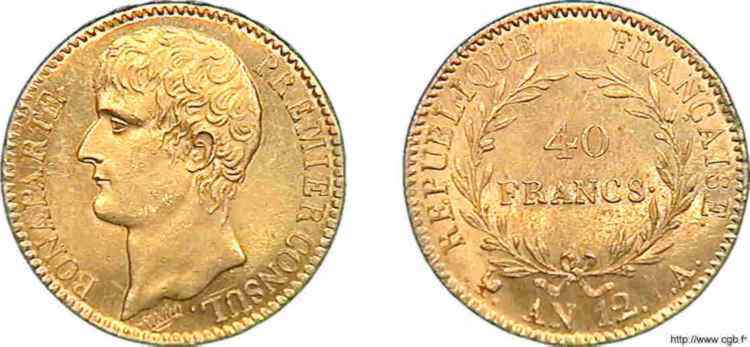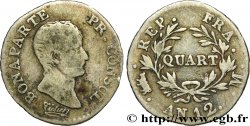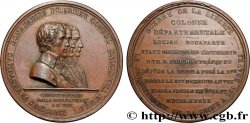v10_0116 - 40 francs Bonaparte Premier Consul 1804 Paris F.536/6
MONNAIES 10 (2000)
Starting price : 1 143.37 €
Estimate : 2 286.74 €
Realised price : 2 850.80 €
Starting price : 1 143.37 €
Estimate : 2 286.74 €
Realised price : 2 850.80 €
Type : 40 francs Bonaparte Premier Consul
Date: An 12 (1803-1804)
Mint name / Town : Paris
Quantity minted : 253406
Metal : gold
Millesimal fineness : 900 ‰
Diameter : 26 mm
Orientation dies : 6 h.
Weight : 12,90 g.
Edge : en creux * DIEU PROTEGE LA FRANCE
Coments on the condition:
Il existe des monnaies dont il est très difficile de trouver de superbes exemplaires, d'autres pour lesquels des années de recherches, et une bonne dose de chance, sont nécessaires : la 40 francs Premier Consul est de celles-ci. C'est dire l'intérêt tout particulier de cet exemplaire exceptionnel. Les coins sont très frais, presque à fleur, les champs brillants, presque en miroir. Un léger velours recouvre le portrait impérial, mêlé à la rugosité originelle de la gravure, il offre un superbe contraste avec le champ et donne presque l'impression d'y flotter dans la lumière. La réflexion sur les courbes du portrait crée des lignes brillantes de reflet direct et, par opposition, des lignes noires : sous un éclairage réfléchi directement, le portrait semble être en ronde bosse - impact visuel extraordinaire. Le revers, aux lignes épurées et sobres, donne, à sa manière, le même effet visuel d'un dessin au trait dans une nappe de lumière. Il faut noter sur cet exemplaire que les lignes de polissage des coins, très très fines, ne sont pas dans un axe régulier mais plus généralement en axe vertical. Il est très probable que le travail étant fait à la main, les zones étroites des champs (comme par exemple la signature) étaient plus facile à poli. le centrage est excellent. La tranche est assez profondément insculpée, sa légende couvrant toute la largeur sans donc provoquer d'effets notables de "soulevés" sur le listel. L'observation directe à l'œil nu montre au droit des irrégularités de reflet dans la chevelure, désignant ainsi des zones où le velours est atténué ou manque, et de minuscules égratignures qui sont d'autant plus visibles que le champ est bien en miroir. Rien à signaler au revers hors l'impression de légères irrégularités donnée par des égratignures trop petites pour être distinguées individuellement sans une loupe puissante. Celle-ci nous confirme les minuscules égratinures de surface et révèle une perte de velours sur certaines feuilles des rameaux d'olivier. Au droit, même résultat, de minuscules égratignures et une perte de velours sur les points les plus hauts
Catalogue references :
Obverse
Obverse legend : BONAPARTE - PREMIER CONSUL..
Obverse description : Tête nue de Bonaparte à gauche ; signé Tiolier cursif sous le buste.
Reverse
Reverse legend : RÉPUBLIQUE FRANÇAISE. / AN 12 A // 40 // FRANCS.
Reverse description : au centre, dans une couronne formée de deux branches d'olivier.
Commentary
Cet exemplaire est celui de la Collection Idéale. Il illustre le type dans le FRANC III en couleurs. L'un des deux plus beaux exemplaires que nous ayons vu pour le type.








 Report a mistake
Report a mistake Print the page
Print the page Share my selection
Share my selection Ask a question
Ask a question Consign / sell
Consign / sell
 Full data
Full data









